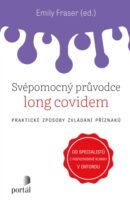Joanna Rajewska de Mezer
Medailon autorů:
Joanna Rajewska de Mezer is a lawyer, legal advisor, family mediator, closely cooperating with the institution of the social assistance system in Poland, doctor in pedagogy (2008), dealing with the issues of legal aspects of social assistance, legal protection of a child and family, as well as the issue of social rehabilitation of people leaving correctional institutions and prisons. She is a Lecturer at the Faculty of Educational Studies and the Faculty of Social Sciences of the Adam Mickiewicz University in Poznań, and author of a number of publications on legal aspects of social assistance and resocialization.
Anotace:
OBJECTIVES: The purpose of the work is to show the importance of mediation, which is a form
of conflict resolution, as a tool of social work with the beneficiary in the case of divorce and the
need to protect children’s wellbeing. THEORETICAL BASE: Mediation is a form of extrajudicial
conflict resolution allowing the participants to present arguments, work out a satisfying solution (in
case of divorce) and protect and stabilise a child’s situation. METHODS: Publications, statistical
data, and legal acts regulating the conditions for providing assistance in regulating the legal
situation of a child to divorcing families and the possibility of using mediation in social work with
families were examined. OUTCOMES: Mediation proceedings are often taken up in the context
of social assistance and are proposed as a form of extrajudicial dispute resolution in family cases.
Institutions of the social assistance in Poland offer clients a free-of-charge mediation proceedings
that can be used by clients dealing with family problems. SOCIAL WORK IMPLICATIONS:
The interpersonal dimension of mediation is important for community social work as it makes it
possible to find alternative ways of conflict resolution between family members. Mediation allows
support based on activating people for self-help (subsidiarity principles).
Klíčová slova:
family mediation, mediation in social assistance, child’s good, family conflict, conflict resolution
s. 87–102






